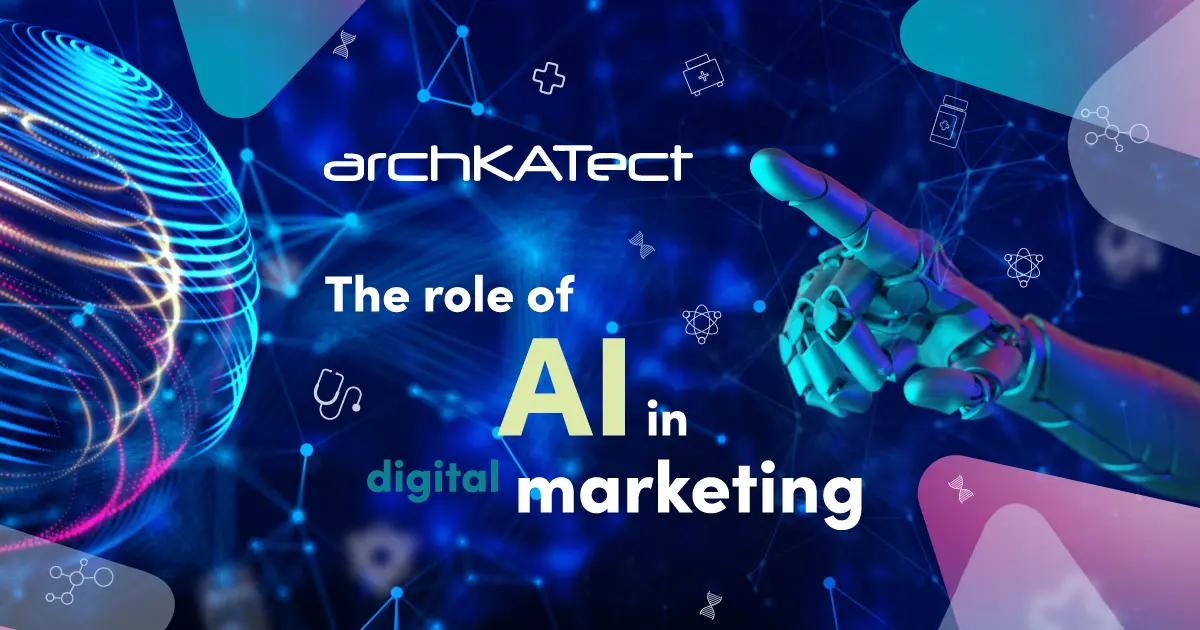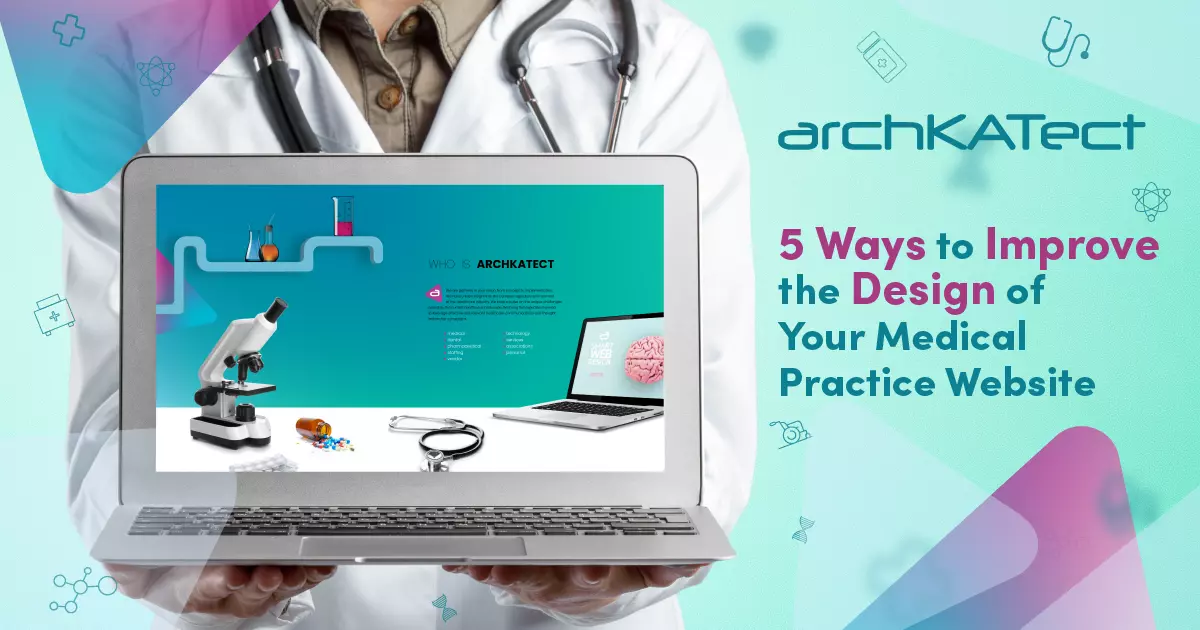Artificial Intelligence (AI) has revolutionized digital marketing in recent years.
In fact, a 2018 McKinsey study analyzed 400 use cases and determined that “marketing was the domain where AI would contribute the greatest value.” [I]
B2B healthcare brands are increasingly adopting AI to improve their marketing strategies. So what does this mean?
In this article, we will explore the role of AI in digital marketing with a focus on B2B healthcare brands and their target audience.
AI in Digital Marketing
AI technologies such as machine learning, natural language processing (NLP), and predictive analytics are transforming the way healthcare businesses approach marketing by enabling them to collect and analyze vast amounts of data in real-time, leading to better decision-making and more effective marketing campaigns.
Here are some examples of how AI is transforming healthcare digital marketing:
Make Predictive Analytics More Accessible
One of the main strengths of AI is its ability to analyze huge amounts of data quickly and identify key trends that might not be obvious to a human. Since so much of marketing centers around understanding your audience and their desires, accessing these data insights can help brands make informed decisions.
According to a 2022 IBM report on the power of AI, “Up to 85% of marketers say they are drowning in data but aren’t sure how to use it in a privacy-friendly manner to target their audiences…AI solutions can help by using anonymized data to understand consumers in their individual contexts.” [ii]
With the advent of digitized marketing came data overload for brands trying to understand their audiences. Suddenly they had access to more data points than ever before. However, combing through and identifying trends in that data can be both a time-consuming and sometimes impossible challenge. AI can enhance the process of uncovering customer insights through “advanced data models, powerful algorithms, and machine learning.” [ii]
Predictive analytics helps healthcare brands make strategic decisions, optimize their marketing campaigns, and stay ahead of the competition.
Improve Personalization
Think about the last time you logged into a streaming service like Netflix or Hulu. The platform probably made personalized recommendations for shows and movies you would enjoy. Those recommendations were a product of AI.
Because AI has the power to analyze and identify trends in such large amounts of data, the insights it uncovers can be used by brands to improve the personalization and relevancy of their consumer-facing content.
An AI analysis published by Deloitte explains what this looks like in practice: “Today, AI and Predictive Analytics allow marketers to accurately identify the best target group. The process is faster and more accurate – it can also help identify new segments of this group that are characterized by the same attributes. This approach allows customers to present a more individualized offer to customers, thereby creating a unique, personal bond that would be difficult to achieve without AI.” [iii]
Essentially, AI can help healthcare brands better target their audiences with personalized content and identify the channels they are most likely to interact within.
Increase Productivity
Overall, AI has the capacity to increase efficiency and productivity in significant ways for businesses. For example, many software companies integrate AI into their marketing tools to streamline and simplify the user experience.
For example, HubSpot recently announced its new AI-powered tools that are designed “to help its customers save time while creating better connections with their audiences.” [iv]
Here’s how Andy Pitre, EVP of Product at HubSpot, explained the new introduction of AI integrations within their tools: “We are experiencing a step-function change in the way people work. At HubSpot, our goal is to help companies connect more deeply with their customers. Our new AI-powered content assistant helps them create quality content faster and easier, to better serve their customers.” [iv]
As AI technologies continue to advance, companies will continue to leverage their power to make their tools easier and faster to use.
The Future of AI in B2B Healthcare Digital Marketing
AI is transforming B2B healthcare digital marketing, providing valuable insights into customer behavior, identifying trends, and creating more effective marketing campaigns. By using AI-powered tools, B2B healthcare brands can gain a competitive edge and drive sales. Whether it’s account-based marketing, personalized marketing messages, or predictive analytics, AI is changing the way B2B healthcare brands approach digital marketing. As AI technology continues to evolve, we can expect to see even more innovative uses of AI in B2B healthcare digital marketing in the future.
If you’re new to AI and need help leveraging the latest digital marketing tools for your brand, we would love to partner with you. Contact us today to learn more about how we can help your healthcare brand with your AI marketing needs.
References
- Davenport, T.H., Guha, A. and Grewal, D. (2021). How to Design an AI Marketing Strategy. [online] Harvard Business Review. Available at: https://hbr.org/2021/07/how-to-design-an-ai-marketing-strategy.
- www.ibm.com (n.d.). The power of AI to marketers. [online]
- Deloitte Slovenia. (n.d.). How to leverage AI in marketing: three ways to improve consumer experience. [online] Available at: https://www2.deloitte.com/si/en/pages/strategy-operations/articles/AI-in-marketing.html.
- Munroe, M. (n.d.). Working Smarter, Not Harder: HubSpot CRM Introduces New AI-Powered Tools to Boost Productivity and Save Time. [online] www.hubspot.com. Available at: https://www.hubspot.com/company-news/hubspot-ai [Accessed 9 Mar. 2023].




